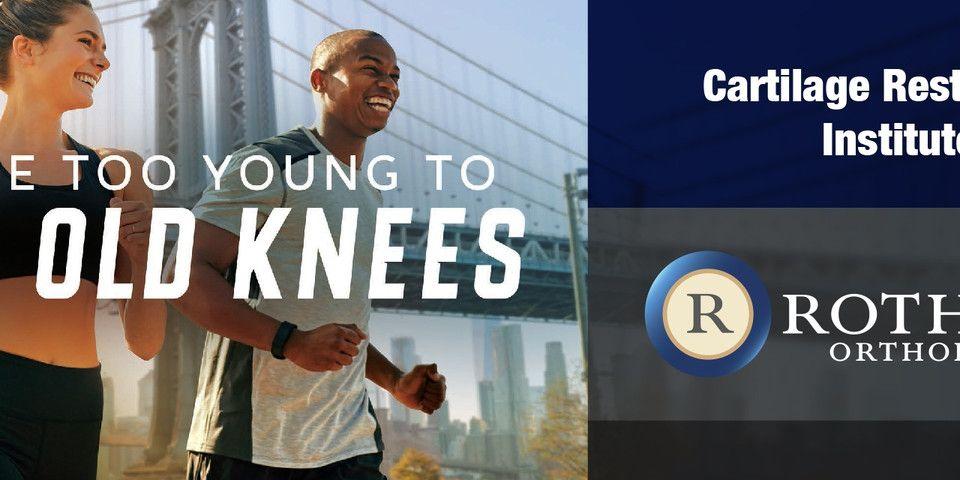Your PCL Injury Requires Expert Care
You may have heard of anterior cruciate ligament (ACL) tears due to their high incidence in athletes. But did you know about posterior cruciate ligament (PCL) injuries? Because PCL tears are less common compared to other ligament injuries, they may go undetected for some time following a traumatic event. That’s why it’s important to see a qualified knee specialist for diagnosis and treatment when an injury strikes.
At Rothman Orthopaedic Institute, we provide the best PCL injury treatment NYC has to offer. Our superior knowledge and evidence-based methods have earned us a national reputation for orthopaedic excellence. We draw on a wide range of options when treating PCL injuries on the Lower East Side, including PCL reconstruction surgery.
How Does a PCL Injury Occur?
The posterior cruciate ligament is located at the back of the knee, where it connects the thigh bone to the shinbone. Tearing this ligament takes a powerful force. As an example, we have seen patients with PCL injuries after hitting their bent knee against the dashboard during a car accident. A fall that causes a direct impact to the front of the leg and knee can also result in a PCL tear. You may not necessarily hear the “popping” noise associated with an ACL tear if the PCL has been damaged.
Here are common symptoms of a PCL tear:
-
A stiff, swollen knee
-
Knee pain
-
Wobbly or unstable sensation in the knee
-
Trouble walking or bearing weight on the affected knee
When left untreated, PCL injuries may lead to instability and osteoarthritis in the knee.
Options for PCL Injury Treatment in NYC
The treatment options chosen for you largely depend on the type and severity of the injury. Posterior cruciate ligament sprains are categorized on a scale from one to three:
-
Grade One: The ligament has been mildly damaged. Though it has been stretched, it retains the ability to keep the knee joint stable.
-
Grade Two: The ligament has been stretched to the point of becoming loose, called a partial tear.
-
Grade Three: The ligament has been torn completely into two pieces, leaving the knee joint unstable.
Once you are diagnosed with a PCL injury, you should take time to rest so that the ligament can heal as much as it can on its own. The R.I.C.E. method should be used to speed up your natural recovery:
-
Rest: Avoid moving the injured knee as much as possible.
-
Ice: Apply ice packs to the affected area for 10-15 minutes at a time every hour to alleviate pain and inflammation.
-
Compression: A bandage can be gently wrapped around the knee to help reduce swelling. It should be snug but not tight, which could interrupt the blood flow (an important component for healing!).
-
Elevation: The knee should be propped up so that it is above the level of your heart for two to three hours daily to keep the swelling down.
Your doctor may recommend a brace to reduce knee mobility, as well as crutches to keep you from putting weight on the injured knee. This is important to ensure that you won’t reinjure the already sensitive ligament. When healing has progressed sufficiently, you will begin a physical rehabilitation program to strengthen the muscles in your quadriceps, which is key to a successful PCL recovery.
Is Knee Surgery Right for Me?
Surgery may be recommended for those with combined injuries or particularly severe PCL instability. Instability from a ruptured ligament causes the shinbone to move back and forth while running. Patients may benefit from PCL reconstruction surgery, which rebuilds the ligament using a graft. Using arthroscopic techniques, the graft is attached to the shin bone and thigh bone to reestablish the posterior cruciate ligament.
Because arthroscopy is a minimally-invasive procedure, PCL reconstruction will take less time to heal than an open incision surgery. Physical therapy should begin within one to four weeks of the procedure to help you regain knee strength. You will likely be able to return to a desk job within weeks of the surgery. Though every patient is different, full recovery usually requires six to twelve months.
Expert Care at Rothman Orthopaedic Institute
For athletes in Gramercy Park and the Lower East Side, the best PCL injury treatment in NYC is right around the corner at our office. At Rothman Orthopaedic Institute, you’ll benefit from the expertise and vast clinical experience of our knee specialists. We want to help you recover as soon as possible from your knee injury so that you can return to normal activity.
To learn more or to schedule an appointment at Rothman Orthopaedic Institute, please visit us here or contact us at 1-800-321-9999.
Related Specialties
Related Physicians
Related Conditions
Related Treatments
Related Services
Related Programs
-

Cartilage Restoration Institute
This is a center where patients can go to have their disabled joint biological resurfaced, realigned, and stabilized without having the joint replaced by artificial materials such as metal and plastic. It is well known that the outcomes of patients under the age of 50 undergoing artificial joint replacement are not as good as we would like. Therefore we feel the future of Orthopaedics is to try to restore a joint back to its original anatomy by realignment, ligament reconstruction, and cartilage restoration.Read More





